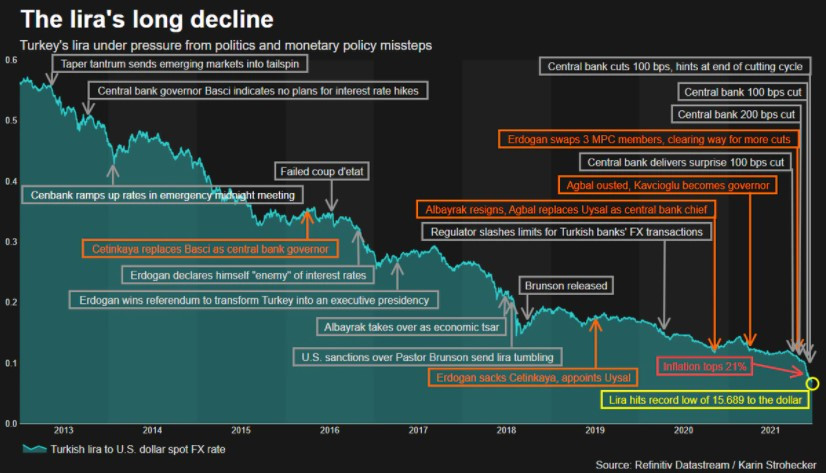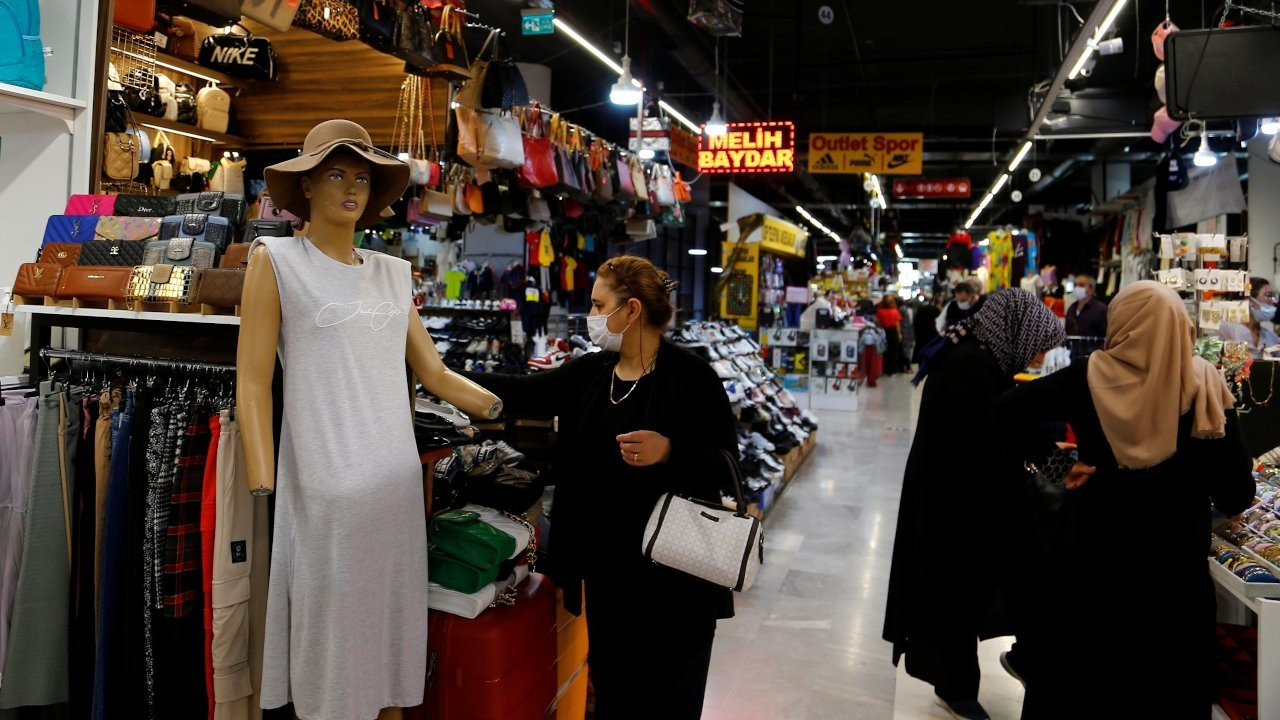Turkish lira hits new low after central bank cuts rates
Turkey's central bank slashed its key rate by 100 basis points to 14% as expected on Dec. 16, and signaled a pause next month.
Reuters
The Turkish lira plunged as much as 5.6% to a record low against the dollar on Dec. 16 after the central bank slashed its policy rate in line with an unorthodox economic program set out by President Recep Tayyip Erdoğan.
The lira touched a low of 15.689 after the move, before trimming losses to 15.58 by 1430 GMT. The dollar has more than doubled in value against the lira this year, rattling Turkey's big emerging market economy.
The central bank's 100 basis point rate cut, in line with the forecasts, brought its cumulative easing since September to 500 points, making the local currency even less attractive to investors and savers.
The bank signaled it would pause the easing cycle to monitor its effects in the next three months.
"The central bank's tolerance for lira pain certainly appears much higher this go around with Erdoğan now more or less fully in charge of rates policy," said Dennis Shen, director of the sovereign and public sector at Scope Ratings.

Erdoğan's new economic plan prioritizes exports and lending, even though economists and opposition lawmakers have widely criticized the policy as reckless. With inflation soaring above 21%, Turks' budgets are straining and anxieties are building.
The central bank has intervened four times in the currency market in the last two weeks, selling dollars to slow the lira sell-off and eating into its already depleted foreign reserves.
After the latest cut, market watchers forecast more pain for the lira, which has lost 47% of its value since the start of September alone.
"It is a bold move that will certainly cost Turkey a lot of money, and headache. The kneejerk reaction is a heavy selloff in the lira. I expect the dollar-try to end the year within the 17-19 band," said İpek Özkardeşkaya, Geneva, senior analyst at Swissquote Bank.
According to the central bank, which targets 5% inflation, the price pressure is temporary and necessary to expand economic growth and balance the current account.
But given the lira's crash, economists predict inflation will jump to near 30% next year due largely to soaring import prices.
After the central bank move, Erdoğan announced a huge 50% hike in Turkey's minimum wage to 4,250 lira ($275) per month next year. The dollar value of the 2021 minimum wage has tumbled to $185 from $380 this year.
Marek Drimal at Societe Generale said the increase "will fuel inflation pressures further, together with the cumulative impact of the lira's weakness."
Commenting on the central bank's plan to re-assess its monetary framework in the first quarter he said the best-case scenario was probably that it refrains from further cuts.
"That itself wouldn't stop the slide in the lira, as real interest rates will further slump to more negative levels," he added.
Erdoğan has overhauled the central bank's leadership this year, bringing in like-minded officials to replace orthodox policymakers, leaving its credibility in tatters, analysts say.
The lira was also hit by the U.S. Federal Reserve's hawkish decision on Dec. 15 to end its bond-buying stimulus in March, and project up to three U.S. interest rate increases next year to tackle heated inflation.

 Turkey hikes minimum wage by 50% in face of bleeding liraEconomy
Turkey hikes minimum wage by 50% in face of bleeding liraEconomy As lira plummets, Bulgarians choose Turkey to shop for medicineEconomy
As lira plummets, Bulgarians choose Turkey to shop for medicineEconomy As prices skyrocket, people in Turkey forced to buy less food from marketsEconomy
As prices skyrocket, people in Turkey forced to buy less food from marketsEconomy Turkish politicians dismiss economic state of emergency rumorsEconomy
Turkish politicians dismiss economic state of emergency rumorsEconomy